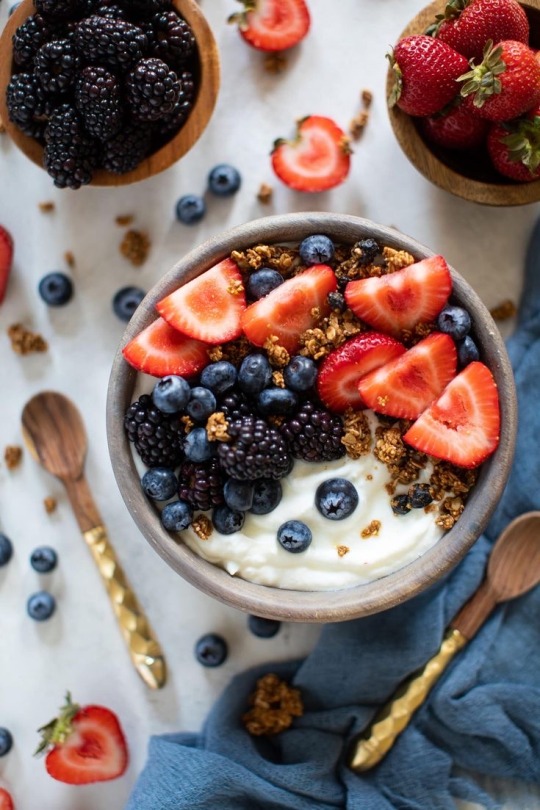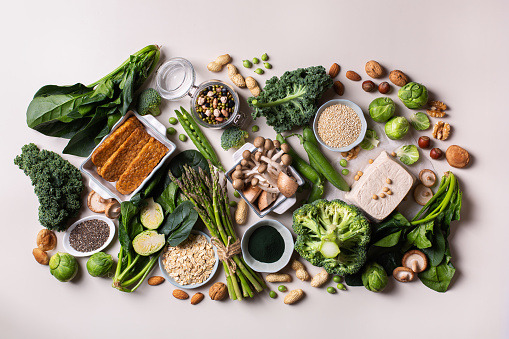#kombucha benefits gut health
Explore tagged Tumblr posts
Text
7 Reasons Why Organic Kombucha Powder Tops Gut Health Charts
A remarkable contender has emerged in health and wellness, captivating the attention of health enthusiasts and professionals alike. Kombucha Tea Powder has taken the gut health charts by storm with its exceptional benefits. Let's explore why this natural elixir has risen to the forefront, overshadowing its competitors and positioning itself as a quintessential addition to a health-conscious lifestyle.

Probiotic Powerhouse: Cultivating a Flourishing Microbiome
At the heart of its popularity lies the unparalleled probiotic content of Kombucha Powder. This superfood promotes a balanced gut microbiome packed with diverse live bacteria and yeast strains. The probiotics in kombucha assist in bolstering the population of beneficial bacteria, aid digestion, boost immunity, and influence mental well-being.
Rich in Enzymes: Enhancing Digestive Vitality
Digestive health is a cornerstone of overall well-being, and Kombucha Powder Packets delivers on this front magnificently. Bursting with enzymes such as amylase, lipase, and protease, it supports the breakdown of complex nutrients, easing the burden on the digestive system. It results in better nutrient absorption and reduced discomfort after meals.
Detoxification Dynamo: Purifying from the Inside Out
In an era where detoxification is paramount, Organic Kombucha is an exceptional ally. Kombucha's organic acids, such as acetic and gluconic acids, bind to toxins and facilitate their elimination. This natural detox process rejuvenates cells, lending a radiant and refreshed complexion.
Immune System Booster: Shielding the Body
A robust immune system is the body's primary defense mechanism, and the consumption of Organic Kombucha Powder can contribute significantly to its fortification. Rich in antioxidants, particularly vitamins C and E, kombucha powder combats oxidative stress, reduces inflammation, and safeguards the immune system against various illnesses.
Mood Enhancement: Nurturing the Mind-Gut Connection
The intricate connection between the gut and the mind has garnered much attention recently. Kombucha contributes to this connection through its impact on the gut-brain axis. The probiotics and bioactive compounds in kombucha can positively influence mood and cognitive function, offering a natural approach to emotional well-being.
Weight Management Support: Achieving Balance
The journey towards achieving and maintaining a healthy weight is often multifaceted. Kombucha with Low Sugar plays a pivotal role in promoting metabolic harmony. The acetic acid in kombucha has been linked to weight management by aiding in appetite regulation, optimizing energy utilization, and supporting healthy digestion, thereby contributing to sustainable weight goals.
Versatility Redefined: Incorporating Kombucha Powder
Beyond its myriad health benefits, the versatility of Organic Kombucha Powder in culinary creations is unmatched. The powder integrates into various recipes, from invigorating smoothies to mouthwatering baked goods. This adaptability ensures that reaping the rewards of kombucha doesn't have to be monotonous.
Final Words Beloit Kombucha is promoting the Best Low Sugar Kombucha to the zenith of gut health charts, which is far from coincidental. Its diverse range of benefits, including gut health optimization, immune system support, detoxification, and mood enhancement, make it a standout contender in health and wellness. As the awareness of the intricate connection between gut health and overall well-being grows, the prominence of kombucha powder as a nutritional powerhouse is bound to escalate. Buy your packet today!
#kombucha healthy gut#healthy gut drink kombucha#kombucha benefits gut health#probiotic black tea benefits#the best kombucha for gut health#blueberry mint kombucha#kombuch healthy drinks#kombucha drinks
1 note
·
View note
Text
Kombucha Market is experiencing Rapid Growth driven by Increasing Health Awareness
Kombucha is a fermented, lightly effervescent and slightly sweetened black or green tea drink commonly consumed for its supposed health benefits. It is made by combining tea, sugar, bacteria and yeast and allowing the mixture to ferment. Kombucha contains various bacteria and yeasts that are said to be probiotic in nature and aid in digestion. The rising health awareness among people regarding the consumption of probiotic foods and beverages has driven the growth of the kombucha market in recent years.
The Global Kombucha Market is estimated to be valued at US$7.9 billion in 2024 and is expected to exhibit a CAGR of 22% over the forecast period 2024-2029. Key Takeaways Key players operating in the Kombucha Market are GT's Living Foods, KeVita, Brew Dr. Kombucha, Humm Kombucha, and Live Soda Kombucha. The Kombucha Market Demand is witnessing robust growth owing to the rising health consciousness among people and increasing awareness about the various health benefits of probiotic drinks. Kombucha aids digestion and gut health due to the presence of various probiotic bacteria and yeasts. North America currently dominates the global kombucha market. However, the Asia Pacific region is expected to witness the fastest growth during the forecast period owing to growing disposable incomes, expanding retail distribution, and increasing popularity of Western alternative beverages in the region. Market Key Trends One key trend gaining popularity in the kombucha market is the launch of various new flavors. To cater to the diverse taste preferences of people, kombucha manufacturers are introducing new flavor innovations. For example, tropical, citrus and herbal flavor variants are being offered. Functional extensions with additional ingredients like ginger, turmeric or guarana extracts are also increasingly common. Such product innovation and line extensions allow manufacturers to expand their consumer base.
Porter's Analysis Threat of new entrants: Kombucha market has moderate barrier for new entrants as it requires high investment and expertise to enter. However, new startups can leverage contract manufacturing. Bargaining power of buyers: Buyers has high bargaining power as the kombucha market has numerous established as well as new players offering variety of products. Bargaining power of suppliers: Suppliers of raw materials like tea used for kombucha fermentation have moderate bargaining power due to limited availability of specialized tea. Threat of new substitutes: Other probiotic drinks and yogurt are potential substitutes but kombucha being promoted as healthier option is witnessing more demand. Competitive rivalry: Intense competition exists among kombucha manufacturers to expand market share and variety of flavors. Geographical Regions North America currently dominates the global kombucha market, holding around 49.5% share in 2017, owing to the increasing health consciousness among consumers. Asia Pacific is expected to witness the fastest growth during the forecast period. Rising middle class population coupled with growing awareness about health benefits of fermented drinks in countries such as China and India is propelling the kombucha market growth in this region.
Get more insights on Kombucha Market
For Deeper Insights, Find the Report in the Language that You want
French
German
Italian
Russian
Japanese
Chinese
Korean
Portuguese
Priya Pandey is a dynamic and passionate editor with over three years of expertise in content editing and proofreading. Holding a bachelor's degree in biotechnology, Priya has a knack for making the content engaging. Her diverse portfolio includes editing documents across different industries, including food and beverages, information and technology, healthcare, chemical and materials, etc. Priya's meticulous attention to detail and commitment to excellence make her an invaluable asset in the world of content creation and refinement.
(LinkedIn- https://www.linkedin.com/in/priya-pandey-8417a8173/)

#Coherent Market Insights#Kombucha Market#Kombucha#Fermented Tea#Probiotics#Gut Health#Healthy Drink#Natural Beverage#Fermentation#Kombucha Benefits#Kombucha Brewing#Organic Kombucha
0 notes
Text
Analyzing the Potential Benefits of Kombucha for Bloating

Kombucha, a fermented tea, has gained popularity for its gut-friendly qualities and potential health benefits. Bloating, a common digestive condition, can be caused by various factors such as a poor diet or medical disorders like irritable bowel syndrome (IBS).
Incorporating kombucha into your daily routine may provide relief from bloating due to its probiotics, enzymes, and organic acids that aid digestion and promote the growth of beneficial bacteria in the gut. While scientific studies on kombucha's impact on bloating are limited, research has shown that probiotics and fermented foods can help reduce bloating and improve gut health.
In addition to bloating, kombucha offers other potential health benefits such as antioxidative properties, improved immune function, and potential anti-cancer effects. To incorporate kombucha into your diet, choose high-quality organic options or make your own at home.
1 note
·
View note
Text
Sharing some helpful facts

View On WordPress
#Baking#Breakfast#Chicken Dinner#desserts#Dinner ideas#dog food#Dog food recipe#easy#easy dinner#GF#gluten free#gluten free dinners#gluten free snack#gluten free with heather Lee#gut health#health benefits#healthy gut#homemade dog food#kombucha#limited edition#lunch#meatless#probiotics#protein#tasty treats#tea
1 note
·
View note
Text
#twisted kombucha#kombucha#kombucha good for gut health#kombucha healthy#health benefits of kombucha drinks#kombucha drink health benefits#kombucha safe to drink#kombucha drink benefits#fermented drink#fermentation drink kombucha#kombucha fermented drink#Nutritional drink#kombucha nutritional drink#nutrition kombucha#kombucha nutritional benefits#kombucha wellness drinks#wellness drink kombucha#easy detoxification drink#kombucha detox benefits
0 notes
Text

#twisted kombucha#kombucha#kombucha good for gut health#kombucha healthy#health benefits of kombucha drinks#kombucha drink health benefits#kombucha safe to drink#kombucha drink benefits#fermented drink#fermentation drink kombucha#kombucha fermented drink#Nutritional drink#kombucha nutritional drink#nutrition kombucha#kombucha nutritional benefits#kombucha wellness drinks#wellness drink kombucha#easy detoxification drink#kombucha detox benefits#kombucha good for detoxing#probiotic kombucha#probiotic drink kombucha#raw kombucha drinks#twisted london#best kombucha uk#kombucha scoby uk#ginger kombucha#most beneficial kombucha#buying kombucha#organic kombucha drink
0 notes
Text
Discover the Exciting New World of Kombucha
The latest trends in kombucha are showing that this ancient fermented drink is gaining more and more popularity as a healthier alternative to sugary sodas and juices. Kombucha is made from sweetened tea that is fermented with a symbiotic colony of bacteria and yeast, or SCOBY. This fermentation process produces a slightly tart, fizzy, and refreshing drink that is loaded with beneficial…

View On WordPress
#adaptogenic herbs#bacteria#Brewing#Fermentation#flavoring#functional ingredients#gut health#health benefits#Kombucha#kombucha culture#modern trends#probiotic drinks#probiotics#SCOBY#sugar#tea#vinegar
0 notes
Text
🔥Ignite the power of your second brain – your gut!
💎A healthy gut is NOT a luxury, it's a necessity for vibrant living!
👉 Here's why you should pay attention to your gut health...
🌟Your gut is your second brain:
– This isn't a metaphor! Your gut communicates directly with your brain, affecting mood, immunity, and overall wellness.
💡Unleash the benefits :
– A balanced gut microbiome can improve digestion, boost immunity, enhance mood, and even aid weight management.
🧪The science?
– It's all about diversity! A diverse gut microbiome, rich in different bacterial species, is a healthy one.
Now, let's get practical. Here's your gut health game plan...
🍽️Top 4 fermented foods :
• Sauerkraut 🥬
• Kimchi 🌶️
• Kefir 🥛
• Kombucha 🍵
🌱Top 4 prebiotic foods :
• Asparagus 🌱
• Bananas 🍌
• Oats 🥣
• Apples 🍎
(These can be consumes both toghether)
🚫Things to avoid :
• Overuse of antibiotics 💊
• Chronic stress 😖
• Processed foods 🍔
Remember, every bite you take is a chance to feed your gut the right way.
Natural Remedies 🤔
#pay attention#educate yourselves#educate yourself#knowledge is power#reeducate yourself#reeducate yourselves#think about it#think for yourselves#think for yourself#do your homework#do some research#do your own research#ask yourself questions#question everything#natural remedies#for your health#health tips#healthy food#healthy living
386 notes
·
View notes
Text
embodying the wellness girlie aesthetic⋆.ೃ࿔*:・🎀

i rly love the pink pilates princess aesthetic so i thought i'd make a post on some habits that i've incorporated that rly fit this aesthetic. and improve my wellness in general.

THE PLAYLIST : for the pink pilates princess aesthetic i rly love to listen to music that makes me feel like a doll~ so the playlist aspect of this post is totally customizable and just suited to however u wanna feel. i listen to a lot of twice and sabrina carpenter when i work out. but listening to music just elevates the experience
THE NUTRITION : u dont have to do a complete 180 in the things that u consume, instead start implementing little by little, foods and drinks that'll improve ur health. bcuz u glow differently when ur glowing not only from the outside but the inside as well
kombucha - i totally recommend trying it if u haven't before. its kind of carbonated and u can get it in any flavors. kombucha in a nutshell is tea thats been fermented. it heals ur gut and contains lots of probiotics which are good for ur body in general
drink tea - drinking tea daily is so so so good for you. if ur a bit intimidated by tea start off with a tea 99% of people enjoy, spearmint/peppermint tea. idk many people who DONT like spearmint tea. its just an easy tea to enjoy and its RLY good for ur skin and ur body.
smoothies - look up smoothie recipes online! smoothies are so yummy and customizable so if u dont wanna directly consume ur veggies, you can get them in through a drink! its revolutionary. my go-to is strawberry and banana, bcuz its not only delicious and good for me, but its also pink which is the main reason
eat more salads, açai bowls, eat ur oats, drink ur smoothies and of course dont forget ur matcha
supplements - u can find wellness vitamins or supplements virtually anywhere. a brand that i rly recommend is ollie. im taking their hair skin and nails vitamins and they're lovely.

THE EXERCISE : if u go to youtube and look up follow along pilates workouts u can find SO many. use ur resources guys! if u try pilates and it isnt rly ur thing, try dance workouts or workouts for songs. try a workout challenge. working out doesn't have to be dull. the key is to find something that u enjoy doing and doing it consistently
SELF CARE : ofc the pink pilates princess prioritizes her self care time~ self care is just a good habit to incorporate period bcuz of the massive benefits on ur mental + physical + emotional state
do a face mask - hydrate ur skin guys
get ur nails done - the classic pink pilates princess nails are pale pinks and french tips
take a bubble bath - invest in a high quality bath bomb or bubble mixture that smells nice
invest in a gua sha
start oiling ur hair and putting in hair masks to keep ur hair healthy
write out what ur grateful for (self care isnt only physical)
GOING FOR WALKS : going for walks is amazing. walking improves cardiovascular health and reduces the chances of heart disease and strokes. i love to go for walks and listen to music or a podcast. just make sure that your walking in a safe space or with someone that u trust, especially if ur alone (stay safe <3) going for walks also helps clear ur thoughts!!

ATTIRE : buy clothes that make u feel cute and that make u feel good whilst working out! i like to wear a lot of pink when working out~ when i type pink pilates princess inspired outfits into pinterest i see a lot with leg warmers too! i think that having a cute outfit to workout in motivates u a lot to actually perform the actions and embody the wellness girlie aesthetic. cuz when u look the part -> u feel the part
and last but not least ENJOY urself and romanticize it, have fun <3
#advice#self concept#it girl#becoming that girl#self care#self love#that girl#it girl energy#honeytonedhottie#dream girl tips#dream girl#dream life#pink pilates princess#girly#girl blogger#girl blog#dolly#wellness girlie#green juice girl#green juice aesthetic#self improvement#self development#self healing#nutrition
211 notes
·
View notes
Text
Me and my partner just tried kombucha for the first time together
Got out some white wine glasses and everything
I do not drink alcohol so i felt quite fancy drinking out of a wine glass 😆☺️
We wanted to try some because we heard about the benefits, probiotics for gut health, liver health, heart health and possibly also the killing of bad bacteria.
But also because we thought the process would be quite fun, a new healthy hobby.
And I thought it might be a nice replacement for soft drinks.
I thought I wasn't going to like it, but it's not bad!
We are going to try and make our own scoby for it.
I'll update when we get there ☺️
If anyone has experience with this process and has tips or ideas please let me know!🩷
#personal#kombucha#gut#guthealth#healthy gut#probiotics#liver health#heart health#fermentation#fermenting#tea#holistic health#holistic#crunchy#crunchy mom#crunchymom#homemaker#homemaking#farmcore#egalitarian#cottagecore#traditional#femininity#feminine#cute#my partner
9 notes
·
View notes
Text
Benefits of Fermented Foods: Why You Should Include Them in Your Diet

Fermented foods are packed with health benefits that can enhance your well-being. Here’s why you should add them to your meals:
Gut Health Improvement: Rich in probiotics, fermented foods like yogurt, kefir, and kimchi help maintain a healthy gut microbiome, promoting digestion and nutrient absorption.
Enhanced Nutrient Absorption: Fermentation breaks down complex compounds, making vitamins and minerals more accessible for your body.
Boosted Immune System: A balanced gut flora supports a stronger immune response, reducing the risk of infections.
Improved Mental Health: The gut-brain connection means that a healthy gut can positively affect your mood and mental clarity.
Weight Management: Fermented foods can help regulate hunger hormones, aiding in weight management.
Variety and Flavor: From tangy kimchi to creamy yogurt, these foods add unique flavors and diversity to your diet.
How to Incorporate Them:
Enjoy yogurt or kefir in smoothies.
Add sauerkraut or kimchi to sandwiches and salads.
Try fermented drinks like kombucha.
Use miso or tempeh in soups and stir-fries.
Start including fermented foods in your diet today to enjoy their delicious flavors and health benefits! 🌟
#FermentedFoods#GutHealth#Wellness#HealthyEating#Nutrition#Probiotics#GutHealthMatters#WellnessJourney#NaturalFoods#HealthyLifestyle#FoodAsMedicine#CleanEating#Fermentation#MindfulEating#HealthBenefits#EatWellLiveWell#HolisticHealth#NutritionTips
6 notes
·
View notes
Text

A woman prepares Matcha Tea, a popular morning drink that provides a Steady Energy Boost and Enhances Mental Clarity. It’s one of several Coffee Alternatives gaining attention for their Health Benefits. Photograph By Liudmila Chernetska, Getty Images
Are These Coffee Alternatives Worth The Hype?
From the Brain-Boosting Effects of Guarana to the Calming Properties of Matcha, These Drinks Offer Both an Energy Lift and Enhanced Mental Focus.
— By Jocelyn Solis-Moreira | August 29, 2024
For many, the day doesn’t begin without that first sip of coffee—a ritual so ingrained it’s almost synonymous with morning itself. But as interest in health and wellness grows, caffeine alternatives offering a different pick-me-up are gaining traction. From the ancient ritual of matcha to the probiotic benefits of kombucha, a range of options promises to energize your morning without the usual coffee jitters. Here’s what you need to know.
Mushroom Coffee ☕️
Mushroom coffee is emerging as an energy-boosting alternative to your regular cup of joe, says Jessica Gavin, a food scientist and author of Easy Culinary Science for Better Cooking.
This morning blend combines ground coffee beans with adaptogenic mushrooms like chaga, reishi, lion’s mane, and cordyceps. Unlike their psychedelic counterparts, these mushrooms won’t alter your mind, but they can help the body adapt to stress, improve immune function, and maintain steady focus, says Gavin. Adding mushrooms to your beverage also provides antioxidants, vitamins, and minerals such as potassium, selenium, and B vitamins.
According to Gavin, most mushroom coffee products use less caffeine—about 48 to 50 milligrams—compared to an eight-ounce cup of coffee which contains 80 to 100 milligrams of caffeine.
“Because mushroom coffee does not have the same taxing load on your central nervous system, one could reasonably assume it’s a better alternative than a cup of coffee or green tea,” says Yaa Boakye, a registered dietitian nutritionist and owner of Elite Body Data.
However, mushrooms like chaga can contain high levels of oxalates, which may increase the risk of kidney stones if consumed in excess.
Matcha Green Tea 🍵
Matcha, a potent form of green tea, delivers more than just a caffeine kick. With around 70 milligrams of caffeine per serving—more than the 50 milligrams in black tea—this herbal brew offers sustained energy without the jitters. According to Gavin, matcha’s unique combination of caffeine and antioxidants boosts brain energy while promoting relaxation, thanks to the amino acid L-theanine, which is known to reduce stress and protect against neuronal injury.
Yerba Mate 🧉
Containing roughly as much caffeine as coffee, South America’s super brew, yerba mate, packs more antioxidants than any other tea-based drink. Made from the leaves of holly trees native to the region, yerba mate offers a steady caffeine release, providing sustained energy without the jitters. According to Boakye, this tea is also rich in polyphenols, vitamins, and minerals not typically found in traditional caffeinated beverages.
Research shows that yerba mate can boost mental alertness and enhance physical performance. Additional benefits include antimicrobial properties, support for weight loss, and the potential to lower blood sugar, reduce cholesterol, and combat chronic inflammation.
Yaupon Tea 🫖
Yaupon tea, brewed from the leaves of the yaupon holly—the only caffeinated plant native to the United States—offers a mild yet energizing boost. Bryan Quoc Le, a food scientist and author of 150 Food Science Questions Answered, says that yaupon tea contains 0.1 to 2 percent caffeine, less than coffee’s 1 to 3 percent. However, it’s not just about caffeine; yaupon tea is rich in xanthines, including theobromine, which enhances mood and alertness without the jitters.
Kombucha 🧋
Kombucha, a fermented tea, is celebrated for its gut health benefits and mild stimulant effects. According to Le, kombucha retains some of the tea’s bioactive compounds, including 3 to 6 percent caffeine, depending on how it’s brewed. But the real star is its probiotics—beneficial microorganisms that nourish the gut’s “good” bacteria. A healthy gut microbiome is linked to improved cognitive functions like attention, memory, and learning. Additionally, kombucha is rich in B vitamins, which Boakye says help the body metabolize nutrients into cellular fuel.
Guarana ☕️
Guarana stands out for its impressive caffeine content, with berries containing 2 to 8 percent caffeine—far exceeding the 1 to 3 percent in coffee beans. In addition to caffeine, guarana is rich in stimulating compounds like theophylline and theobromine, which, according to Gavin, boost cognitive performance, reduce fatigue, and increase alertness. It also boasts antioxidants and anti-inflammatory properties.
Often found in energy drinks with doses ranging from 50 to 75 milligrams, guarana can also be added as a powder to smoothies or other beverages. However, Boakye cautions against excessive consumption to avoid caffeine crashes and jitteriness, noting that the FDA recommends a daily limit of 400 milligrams of caffeine.
“If someone is about to sit and do some office work, [guarana] is probably not a good idea,” says Boakye. “But if you’re about to go and do a workout or an intense boot camp, [it] might be helpful since it provides that quick burst of energy.”
Turmeric Lattes🥤
For a caffeine-free morning boost, turmeric lattes, known as golden milk, deliver powerful antioxidant and anti-inflammatory benefits. Made with turmeric and curcumin, this golden drink can be enhanced with a touch of coconut oil and black pepper, which improve curcumin absorption, says Gavin. Ginger, another key ingredient, aids digestion and adds a spicy kick.
“I prefer it in the morning because the combination of ingredients has a way of stimulating you,” says Gavin. She says the sensation of the gingery spices, pepper, and warm cinnamon on your tongue helps wake up the senses differently than caffeine.
#Nutrition#Heath#Beverages#Coffee ☕️#Tea 🫖#Vitamins#Supplements#Coffee ☕️ Alternatives#Brain-Boosting Effects#Guarana#Calming Properties | Matcha 🍵#Energy Lift | Enhanced Mental Focus#Mushroom Coffee ☕️#Matcha Green Tea 🍵#Yerba Mate 🧉#Yaupon Tea 🫖#Kombucha 🧋#Guarana ☕️#Turmeric Lattes🥤#Jocelyn Solis-Moreira#National Geographic
2 notes
·
View notes
Text

Shopping list for food to help with good digestion and a healthy balance of good bacteria -
1. Probiotic-rich foods: Yogurt, kefir, sauerkraut, kimchi, miso, tempeh, and kombucha are all great sources of probiotics that can help promote good bacteria in your gut.
2. Fiber-rich foods: Foods high in fiber, such as fruits, vegetables, whole grains, and legumes, can help promote healthy digestion and feed the good bacteria in your gut.
3. Prebiotic foods: Prebiotics are non-digestible fibers that help feed the good bacteria in your gut. Foods like onions, garlic, leeks, asparagus, bananas, and chicory root are all great sources of prebiotics.
4. Fermented foods: Fermented foods like pickles, yogurt, kefir, kimchi, and sauerkraut can help promote good bacteria in your gut and improve digestion.
5. Bone broth: Bone broth is rich in nutrients that can help support gut health and digestion. It is also easy to digest and can help soothe the digestive system.
6. Ginger and turmeric: Both ginger and turmeric have anti-inflammatory properties that can help improve digestion and support gut health.
7. Apple cider vinegar: Apple cider vinegar can help promote digestion and balance the bacteria in your gut. It is best to choose raw, unfiltered apple cider vinegar for maximum benefits.
By incorporating these foods into your diet, you can help improve your digestion and promote a healthy balance of good bacteria in your gut.
#food diary#food log#healthy food#comfort food#fast food#food photography#foodie#food#foodpics#foodlover#japanese food#foodmyheart#tw food#healthy salad recipes#lunch recipes#pasta recipes#pasta recipe#salad recipes#soup recipe#recipe#reciprocity#recipies#recipes#cozy autumn#autumn cozy#cozy fall#cozyhome#cozy cozy#cozy living#cozy art
4 notes
·
View notes
Text
Recipes and Food: How to Cook and Eat Well in 2023

Recipes and food are some of the most popular topics on the internet, as people love to cook and eat delicious food. Whether you’re a beginner or an expert in the kitchen, there’s always something new and exciting to learn and try. Cooking and eating well can also improve your health, happiness, and creativity.
But how can you cook and eat well in 2023? What are some of the best recipes and food trends that you can follow in the coming year? In this blog post, we will share some tips and ideas on how to cook and eat well in 2023. Whether you’re looking for easy and quick meals, healthy and nutritious dishes, or exotic and adventurous cuisines, there’s something here for you. Let’s get started!
Recipes and Food Trends for 2023

Here are some of the recipes and food trends that you can expect to see more of in 2023:
- Plant-based foods: Plant-based foods are foods that are made from plants or derived from plant sources. They include fruits, vegetables, grains, nuts, seeds, legumes, mushrooms, algae, etc. Plant-based foods are becoming more popular as people become more aware of the environmental, ethical, and health benefits of reducing their consumption of animal products. Plant-based foods can also offer a variety of flavors, textures, and nutrients that can satisfy any palate. Some examples of plant-based foods that you can try in 2023 are:
- Vegan cheese: Vegan cheese is cheese that is made without dairy or animal products. It can be made from nuts, seeds, soy, coconut, cashew, etc. Vegan cheese can have a similar taste and texture to regular cheese, and can be used in various dishes such as pizza, pasta, sandwiches, etc.
- Jackfruit: Jackfruit is a tropical fruit that has a meaty texture and a mild flavor. It can be used as a substitute for pork, chicken, or beef in various recipes such as tacos, burgers, curries, etc. Jackfruit is rich in fiber, vitamin C, potassium, and antioxidants.
- Oat milk: Oat milk is milk that is made from oats. It has a creamy and smooth texture and a slightly sweet flavor. It can be used as a substitute for dairy milk in various drinks such as coffee, tea, smoothies, etc. Oat milk is high in fiber, protein, calcium, and iron.
- Fermented foods: Fermented foods are foods that have undergone a process of fermentation, which is the conversion of carbohydrates into alcohol or acids by microorganisms such as bacteria or yeast. Fermented foods have a tangy and sour flavor and a long shelf life. Fermented foods are also beneficial for your gut health, as they contain probiotics, which are live microorganisms that can improve your digestion and immunity. Some examples of fermented foods that you can try in 2023 are:
- Kimchi: Kimchi is a traditional Korean dish that consists of fermented cabbage and other vegetables. It has a spicy and pungent flavor and a crunchy texture. It can be eaten as a side dish or added to various dishes such as soups, stews, rice, etc.
- Kombucha: Kombucha is a fermented tea that is made by adding a culture of bacteria and yeast to sweetened tea. It has a fizzy and refreshing flavor and can be flavored with various fruits, herbs, or spices. It can be drunk as a beverage or used as a base for cocktails or mocktails.
- Sauerkraut: Sauerkraut is a fermented cabbage that is made by adding salt and water to shredded cabbage. It has a sour and salty flavor and a soft texture. It can be eaten as a side dish or added to various dishes such as sandwiches, salads, hot dogs, etc.
- Global cuisines: Global cuisines are cuisines that originate from different countries or regions of the world. They offer a variety of flavors, ingredients, and techniques that can expand your culinary horizons and satisfy your taste buds. Global cuisines are becoming more accessible and popular as people travel more and explore new cultures and cuisines. Some examples of global cuisines that you can try in 2023 are:
- Indian cuisine: Indian cuisine is one of the most diverse and flavorful cuisines in the world. It consists of various dishes that are influenced by different regions, religions, and cultures of India. Indian cuisine is known for its use of spices, herbs, grains, legumes, dairy, fruits, vegetables, etc. Some of the most popular dishes in Indian cuisine are curry, dal, biryani, naan, samosa, etc.
- Mexican cuisine: Mexican cuisine is one of the most colorful and vibrant cuisines in the world. It consists of various dishes that are influenced by the indigenous, European, African, and Asian cultures of Mexico. Mexican cuisine is known for its use of corn, beans, tomatoes, chilies, cheese, meat, etc. Some of the most popular dishes in Mexican cuisine are tacos, burritos, enchiladas, nachos, guacamole, etc.
- Thai cuisine: Thai cuisine is one of the most aromatic and flavorful cuisines in the world. It consists of various dishes that are influenced by the Chinese, Indian, and Malay cultures of Thailand. Thai cuisine is known for its use of rice, noodles, coconut, fish sauce, lime, lemongrass, ginger, etc. Some of the most popular dishes in Thai cuisine are pad thai, tom yum soup, green curry, mango sticky rice, etc.
These are some of the recipes and food trends that you can expect to see more of in 2023. There are many more options available in the market for every preference and occasion. When cooking and eating well in 2023, remember to:
- Choose fresh and seasonal ingredients: Fresh and seasonal ingredients are more nutritious, flavorful, and affordable than processed and imported ones. They also support local farmers and reduce your carbon footprint.
- Experiment with new recipes and cuisines: Experimenting with new recipes and cuisines can help you discover new flavors and techniques that can enhance your cooking and eating experience. You can also learn more about different cultures and traditions through their food.
- Enjoy your food with others: Enjoying your food with others can make your meals more enjoyable and meaningful. You can also share your recipes and food tips with your friends and family and learn from theirs.
Conclusion

Recipes and food are some of the most popular topics on the internet, as people love to cook and eat delicious food. Cooking and eating well can also improve your health, happiness, and creativity. In 2023, you can expect to see more plant-based foods, fermented foods, and global cuisines in the market. You can also try some of these tips and ideas on how to cook and eat well in 2023. Whether you’re looking for easy and quick meals, healthy and nutritious dishes, or exotic and adventurous cuisines, there’s something here for you. Cooking and eating well is not only a trend but a lifestyle that can benefit you and the planet. Bon appetit!
By - the_rushit_mind
#food#foodie#life#love#delicious#raw meat#chicken#fishes#dinner#spices#chefknife#chinese#indian#mexican#italian#viral#like4like#instagood#live blogging#love live#money#healthyfood#healthy#healthyliving#tbt#special dishes#follow#me#selfie#fitness
2 notes
·
View notes
Text
Gut Health 101: Why You Need Fermented Foods
Have you noticed any health benefits since adding fermented foods to your diet? Tell us in the comments! #guthealth #probiotics #fermentedfoods #immunity #mentalhealth #healthandwellness #WizBlog #WisdomandRoyalty #linkinbio #explore
Boost Your Digestion: Fermented foods are packed with probiotics—healthy bacteria that promote a balanced gut microbiome. These probiotics help break down food in the digestive system, improving nutrient absorption and preventing bloating. By introducing more fermented foods like yogurt, kimchi, and kombucha into your diet, you can support healthy digestion and reduce gut-related…
#blogger#fermented foods#gut health#health#immunity#Mental health#nikita sky#probiotics#tap into your creativity#wellness#wisdom and royalty#WizBlog
0 notes
Text
#twisted kombucha#kombucha#kombucha good for gut health#kombucha healthy#health benefits of kombucha drinks#kombucha drink health benefits#kombucha safe to drink#kombucha drink benefits#fermented drink#fermentation drink kombucha#kombucha fermented drink#Nutritional drink#kombucha nutritional drink#nutrition kombucha#kombucha nutritional benefits#kombucha wellness drinks#wellness drink kombucha#easy detoxification drink#kombucha detox benefits#kombucha good for detoxing#probiotic kombucha#probiotic drink kombucha#raw kombucha drinks#twisted london#best kombucha uk#kombucha scoby uk#ginger kombucha#most beneficial kombucha#buying kombucha#organic kombucha drink
0 notes